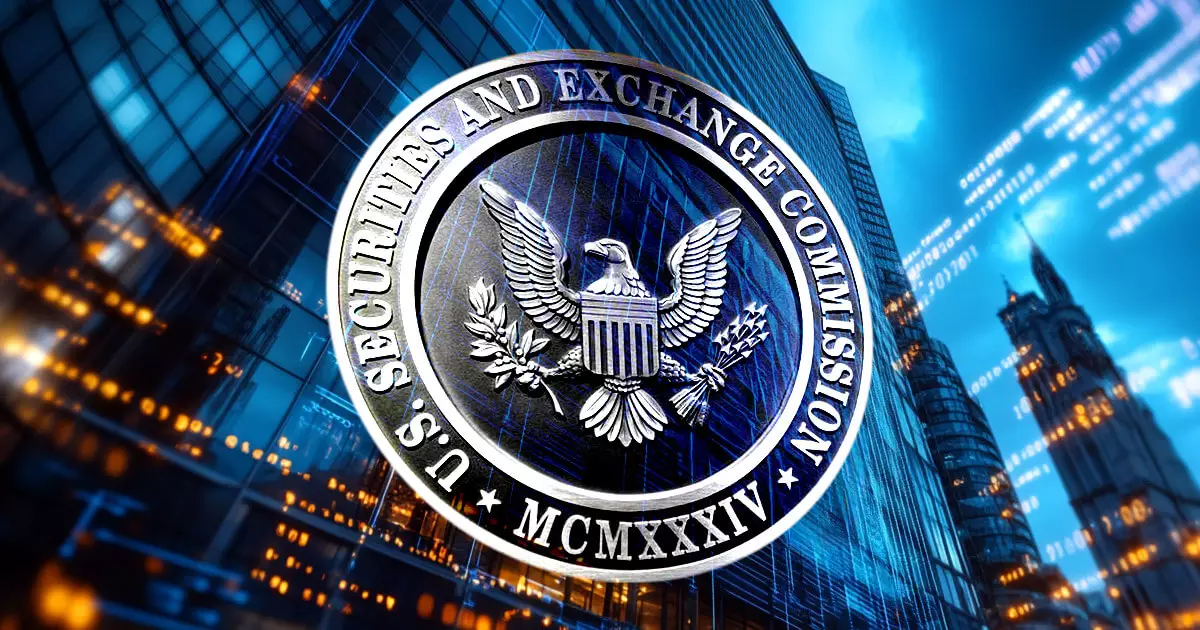In a significant reconfiguration of its regulatory strategy, the United States Securities and Exchange Commission (SEC) has recently introduced the Cyber and Emerging Technologies Unit (CETU), replacing its previous Crypto Assets and Cyber Unit. This transformation, which took place on February 20, signals a broader recognition of the evolving complexities in the digital financial landscape, particularly concerning artificial intelligence (AI) and blockchain technology. The SEC aims to adopt a more comprehensive perspective toward the regulation of digital assets and counteract various cyber-enabled financial crimes.
At the helm of this newly formed unit is Laura D’Allaird, who previously served as the deputy director of the SEC’s Division of Enforcement. The CETU boasts a robust team of 30 attorneys and fraud specialists working across nine regional offices, presenting a consolidated pool of expertise focused on the multifaceted intersections of fintech, cybersecurity, and the emerging digital asset markets. This strategic amalgamation is poised to strengthen the SEC’s ability to supervise and regulate an array of misconduct scenarios spurred by technological advancements, including AI-driven fraud and blockchain-related deception.
The CETU is tasked with prioritizing six crucial areas of concern that reflect current and emerging threats: schemes utilizing AI to defraud, manipulative practices on the dark web and social media, breaches involving unauthorized access to sensitive information, account takeovers at brokerage firms, fraud specifically linked to crypto assets, and failures in cybersecurity compliance. The unit’s focus on these sectors recognizes the intricate landscape defined by digital finance, where innovative mechanisms can be abused if left unchecked.
Acting SEC Chair Mark Uyeda has underlined that this unit will not operate in isolation; it will work in conjunction with existing initiatives, notably the Crypto Task Force spearheaded by Commissioner Hester Peirce. This collaborative approach aims to judiciously allocate enforcement resources while simultaneously nurturing an environment conducive to technological innovation. Uyeda articulated a dual mission for the CETU: to protect investors while also facilitating capital formation and ensuring that the marketplace retains its dynamism.
The formation of the CETU appears to be a strategic response to the criticisms faced under former SEC Chair Gary Gensler’s aggressive approach to enforcement. The high-profile litigations against significant market players like Coinbase and Ripple often bred uncertainty within the industry, leading to calls for a more nuanced regulatory framework that would not inadvertently stifle innovation. This reflects a shift towards a more balanced view that recognizes blockchain and related technologies as integral components of the future financial framework, while still addressing the potential for misuse.
Beyond the CETU’s creation, the SEC’s structural changes seem to be aligned with a broader set of reforms initiated during the Trump administration. These amendments include the withdrawal of restrictive accounting guidelines, improvements in the classification of crypto assets, and the approval of new spot cryptocurrency exchange-traded funds (ETFs). This alignment with the administration’s vision aims to bolster the United States’ position as a leader in blockchain innovation, countering the growth of foreign Central Bank Digital Currencies (CBDCs) by promoting private stablecoin projects.
Crucially, the CETU approaches its responsibilities without an overarching mandate to persecute perceived securities fraud tied to crypto projects. Instead, it delineates its focus on fraud in cases where blockchain and digital assets serve purely as transaction mediums. This distinction posits a potentially transformative regulatory perspective—one that could cultivate a more transparent dialogue around the nature of digital assets, steering clear of broad classifications that risk categorizing nearly all digital tokens as unregistered securities, as once suggested by Gensler.
The establishment of the CETU represents a pivotal moment for the SEC and its approach to digital asset regulation. By combining robust cyber expertise with an understanding of emerging technologies, the commission seems poised to address the multifaceted risks that accompany innovation, all while fostering a climate that encourages institutional participation in digital markets. As blockchain technology irreversibly integrates into the global financial system, the SEC’s adaptation reflects a necessary evolution—an evolution that, if navigated wisely, could lead to a healthier balance between innovation and investor protection in the dynamic frontier of digital finance.


Leave a Reply